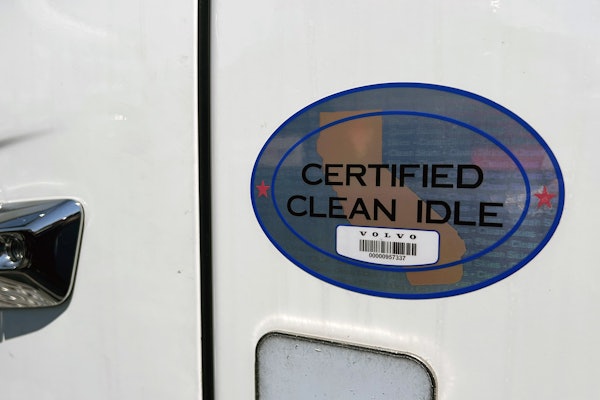Announcing the upcoming introduction of ultra-low-sulfur diesel at the retail level, Environmental Protection Agency Administrator Stephen Johnson today, Oct. 10, touted the move to ULSD as “the single greatest achievement in clean fuel since lead was removed from gasoline over 25 years ago.”
Johnson kicked off the switch to ULSD in a visit to Cummins engine test facilities in Columbus, Ind., where he saw the work being done to prepare Cummins to meet the 2007 emissions standards. Later, he issued a statement and fielded questions from reporters in a teleconference.
“America’s pumps are primed to deliver on President Bush’s goal of clean diesel and cleaner air,” said Johnson. “Over the last century, diesels have been our nation’s economic workhorse – reliable, fuel-efficient and long-lasting. Today, through the president’s investment in clean fuel technology, America’s economic workhorse also is becoming America’s environmental workhorse.”
The Oct. 15 implementation date is more of a milestone in the transition than a deadline. Under EPA’s ULSD rules, retailers that have chosen to sell ULSD by Oct. 15 must meet the 15 parts per million of sulfur spec as of that date. So fuel retailers aren’t required to sell ULSD as of Oct. 15, although if they don’t sell ULSD they do face some limitations on how much ULSD they can “downgrade” and sell as low sulfur (500 ppm).
Despite the rules, the reality is that most diesel flowing to retailers will be ULSD anyway. Johnson said that ULSD production currently tops 2.4 million barrels a day – more than 90 percent of the demand. So EPA expects a majority of fueling stations to have ULSD by Oct. 15. Also, since heavy-duty diesel engines built after Jan. 1, 2007, must use ULSD, selling it will become a market necessity at some point.
Once fully implemented, ULSD will result in the annual reduction of 2.6 million tons of nitrogen oxides and 110,000 tons of particulate matter, and result in $150 billion in annual health- and welfare-related benefits, Johnson said.





